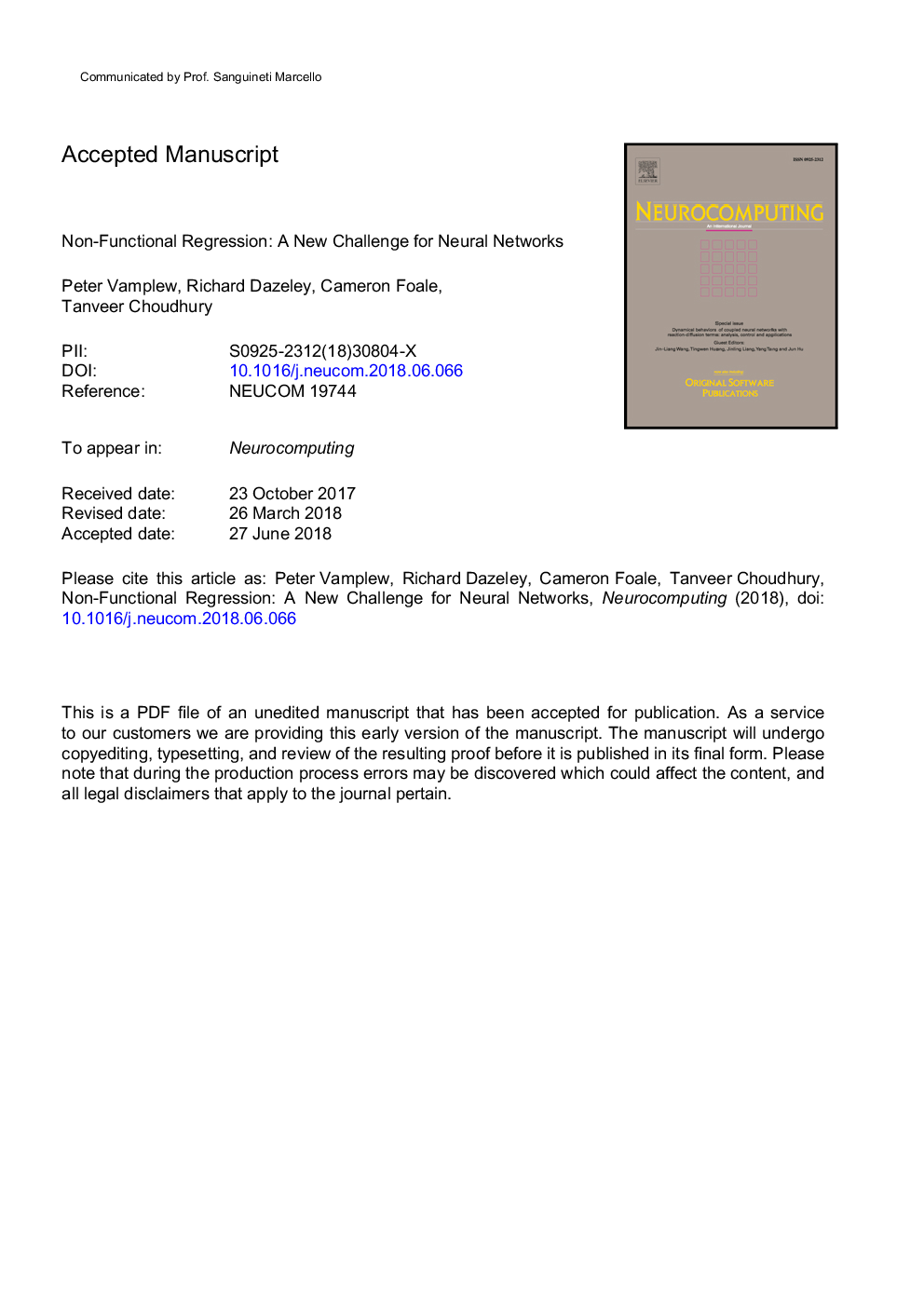| Article ID | Journal | Published Year | Pages | File Type |
|---|---|---|---|---|
| 8960143 | Neurocomputing | 2018 | 27 Pages |
Abstract
This work identifies an important, previously unaddressed issue for regression based on neural networks - learning to accurately approximate problems where the output is not a function of the input (i.e. where the number of outputs required varies across input space). Such non-functional regression problems arise in a number of applications, and can not be adequately handled by existing neural network algorithms. To demonstrate the benefits possible from directly addressing non-functional regression, this paper proposes the first neural algorithm to do so - an extension of the Resource Allocating Network (RAN) which adds additional output neurons to the network structure during training. This new algorithm, called the Resource Allocating Network with Varying Output Cardinality (RANVOC), is demonstrated to be capable of learning to perform non-functional regression, on both artificially constructed data and also on the real-world task of specifying parameter settings for a plasma-spray process. Importantly RANVOC is shown to outperform not just the original RAN algorithm, but also the best possible error rates achievable by any functional form of regression.
Keywords
Related Topics
Physical Sciences and Engineering
Computer Science
Artificial Intelligence
Authors
Peter Vamplew, Richard Dazeley, Cameron Foale, Tanveer Choudhury,
